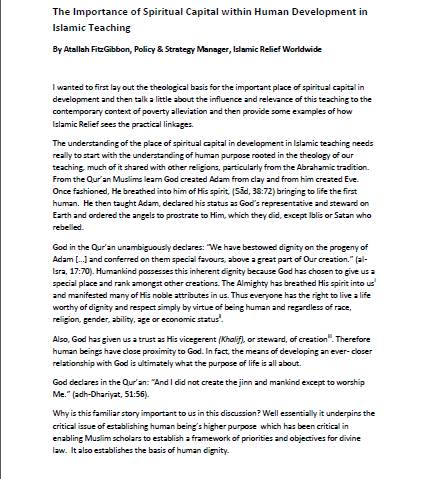
In Islam, the basic goal of development is to create an environment that enables people to enjoy spiritual, moral and socio-economic well-being in this world and success in the Hereafter (falah). Such an environment can only be created in societies that work to remove sources of human deprivation in multiple dimensions. This paper agrees with the view of some scholars of the objectives of Islamic law (Maqasid al-Shari’ah); that there are five crucial dimensions of human development namely; spiritual (faith), human (life), educational (intellect), social (posterity) and economic (wealth). It therefore adopts the Maqasid as an Islamic framework for development.
This paper discusses the Islamic stances on issues surrounding the primary sources of knowledge in Islam, the Qur’an and Sunnah, to identify the key principles and core values that underpin Islamic views on development, poverty reduction, humanitarianism, human rights and advocacy. It will attempt to define these concepts from an Islamic point of view and present an outline of some of the tools and approaches that are provided by Islam to address them.
Office
http://policy.islamic-relief.com
Citation
Fitzgibbon, A (2012) The Importance of Spiritual Capital within Human Development in Islamic Teaching. [Online] Available http://policy.islamic-relief.com/wp-content/uploads/2014/05/Spiritual-Capital.pdf





